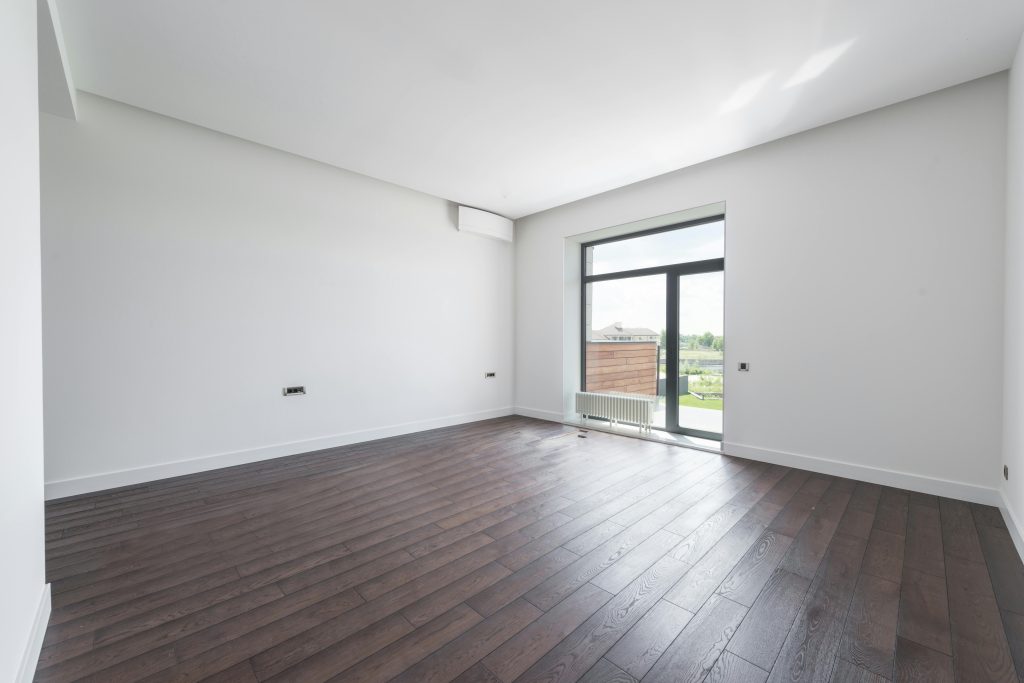If you’re planning to sell a tenanted property, let me cut through the fog.
A sitting tenant can knock 20% to 40% off your property’s market value.
Why? You’re not just selling bricks and mortar. You’re selling a property tied up with legal obligations.
Whether it’s an old-school regulated tenant paying a pittance like £100 a month or a modern Assured Shorthold Tenancy (AST) with a tenant refusing to budge, the reality is the same: it shrinks your buyer pool and drags down the price. Most people look to buy property to live in it, so a tenant kind of messes that option up for most potential buyers.
In this guide, I’ll walk you through:
- What a sitting tenant is (and the legal strings attached)
- How much they reduce your property’s value – with real numbers
- Which tenancy types hit your sale price hardest
- Your options for selling (including quick solutions)
- Common myths you need to ditch
Let’s dive in.
What Is a Sitting Tenant?
When you sell a property in England or Wales, the dream is simple: hand over the keys, the buyer moves into a vacant home, and you’re done.
A sitting tenant changes everything.
Legal Definition
A sitting tenant is someone with a legal right to stay in the property after it’s sold. They’re not squatting or overstaying. They’re your tenant – and they’ll become the new owner’s tenant, too.
This happens with several tenancy types:
- Regulated tenancies (pre-1989, under the Rent Act 1977)
- Assured Shorthold Tenancies (ASTs) – the most common today
- Company lets or other contractual agreements
Here’s the kicker: the buyer inherits the tenancy agreement – and all its headaches.
Why Sellers Worry
With a sitting tenant, you’re not selling the full bundle of property rights. You’re selling a restricted version.
The new buyer can’t:
- Move in themselves
- Redevelop the property
- Easily raise the rent
Worse, evicting a tenant – especially under older tenancy types – can be a legal nightmare. That’s why most buyers run a mile, and those who don’t will demand a steep discount.
How Much Less Is a Property Worth with a Sitting Tenant?
Let’s get to the nitty-gritty.
On average, a property with a sitting tenant sells for 20% to 40% less than a vacant one.
Why the drop? You’re selling a legal relationship, not just a house. And for most buyers, that’s a deal-breaker.
Average Price Reduction (With Real Figures)
Recent data from property experts suggests:
- In 2025, UK properties with sitting tenants sold for an average of £260,000, about 20% less than comparable vacant properties (source: Zoopla market analysis, 2025).
- In high-demand areas like London, discounts might be closer to 15%, but in less desirable locations, expect 30% or more.
- For properties with regulated tenants, discounts can reach 50% – a £300,000 home might fetch just £150,000 at auction.
In Scotland, stronger tenant protections push standard discounts higher, often around 25% to 30%.
Let that sink in.
Key Influencing Factors
The size of the discount depends on a few variables. Here’s what matters most:
- Type of Tenancy
- Regulated tenants (pre-1989) often have lifelong rights and pay below-market rent. Eviction is near impossible, slashing value.
- ASTs are easier to manage – you can serve notices like Section 8 – but legal delays, costs and uncertainty still hurt. New laws in 2025 are making eviction of these tenants permissible if the property is being sold.
- Company lets or licences are less restrictive, with more flexibility for exits.
- Rent Level vs Market Rent
If your tenant’s rent is half the market rate, buyers will factor in the low yield. Lower rent, lower offer. Simple. - Tenant’s Age and Health
For regulated tenancies, older or vulnerable tenants have stronger protections, deterring buyers. - Mortgageability
Many lenders avoid tenanted properties, especially with regulated tenants. This limits you to cash buyers, who expect bigger discounts. - Location and Demand
A tenanted property in central London might still attract bids. A dated flat with a regulated tenant in a less desirable area? Good luck.
Pro Tip: If your tenant is on a modern AST, paying market rent, and the property’s in top condition, you might need to give a discount as low as 10% to 20%. But complex cases? Brace for more.
Tenancy Types That Affect Property Value the Most
Not all tenancies are equal in the eyes of buyers or lenders. Some are manageable. Others are a nightmare. Let’s break down the big three.
1. Regulated Tenancies (Pre-1989)
These are the worst for your property’s value.
If your tenant moved in before 15 January 1989 under the Rent Act 1977, they likely have a regulated tenancy. Here’s what that means:
- Tenants can stay for life – and sometimes pass the tenancy to family.
- Rent is often far below market, set by a rent officer.
- Eviction is nearly impossible without exceptional grounds.
- Many properties are unmortgageable, limiting you to cash buyers.
Discount range: 40% to 50% off market value, sometimes higher.
It’s brutal, but it’s the reality.
2. Assured Shorthold Tenancies (ASTs)
ASTs are the standard for post-1989 tenancies and far more common.
They’re easier to sell, but still come with catches:
- You can serve a Section 21 (no-fault eviction, though abolished in England as of 2025) or Section 8 (grounds-based, e.g., rent arrears). Both take time.
- Buyers will check if the rent matches market rates.
- Lenders are more open to financing, but only with proper paperwork.
Discount range: 10% to 25%, depending on the tenancy terms and local market.
3. Company Lets or Contractual Tenancies
These are the least problematic:
- They offer more legal flexibility, as they’re outside the Housing Act 1988.
- Often used for short-term corporate rentals or serviced accommodation.
- Buyers see them as low-risk if the terms are clear.
Discount range: 0% to 10%, sometimes none at all.
Quick Summary
| Tenancy Type | Legal Security for Tenant | Buyer Demand | Typical Discount |
| Regulated Tenancy | Extremely High | Very Low | 40%-50% |
| AST | Moderate | Moderate | 10%-25% |
| Company Let | Low | High | 0%-10% |
Why a Sitting Tenant Reduces Market Appeal
A sitting tenant sounds like a perk – rental income from day one, no need to find a tenant. But for buyers, it’s often a red flag. Here’s why.
Smaller Buyer Pool
A sitting tenant cuts your market down drastically.
Most buyers aren’t landlords. They’re homeowners wanting vacant possession. Even buy-to-let investors hesitate unless:
- The tenancy is recent and well-documented
- Rent matches market rates
- The tenant has a solid payment history
- The lease allows flexibility
Add a regulated tenant? You’re left with a tiny pool of cash investors or professional landlords who’ll haggle hard.
Perceived Risks
Buyers see tenants as a potential minefield. Their concerns include:
- Rent arrears: Is the tenant paying reliably?
- Eviction costs: How long and expensive would it be to regain possession?
- Legal costs: Solicitors, court fees, and enforcement add up.
- Property condition: Will the tenant leave the place in a state?
- Compliance issues: Is the deposit protected? Are EPC, EICR, and gas certificates current?
- Property energy rating: Energy ratings of less than C could become illegal on rental properties in the near future, so a lower energy rating could mean very costly repairs for any new landlord.
Any uncertainty can scare buyers off.
Reduced Flexibility
A tenant limits what buyers can do. They can’t:
- Move in
- Renovate or redevelop
- Flip the property quickly
- Refinance easily
All they can do is wait – and hope the tenant plays ball.
Bottom line: Buyers want freedom. Sitting tenants tie their hands.
Tenant Rights and Protections: What You Need to Know in 2025
Before putting your property on the market, it’s essential to understand your tenant’s legal rights- ignoring them could result in costly delays, legal action, or financial penalties.
Regulated Tenancies
Some long-term tenants, particularly those under the Rent Act 1977, continue to enjoy strong protections. These tenants can remain in the property indefinitely and often pay below-market rents. Eviction is only permitted under specific circumstances, such as substantial rent arrears or significant damage to the property, and typically requires a court order.
Assured Shorthold Tenancies (ASTs)
Under the Renters (Reform) Bill 2025, major reforms have come into effect:
- Section 21 ‘no-fault’ evictions are abolished. Landlords can no longer evict tenants without providing a legitimate reason.
- Evictions now rely on updated Section 8 grounds, which have been expanded to include new and clearer justifications, such as persistent rent arrears or a landlord’s intention to sell. All evictions will require court action, which will be costly and time-consuming.
- All new tenancies are periodic by default. Fixed terms are no longer the standard, making it easier for tenants to leave when they want, but harder for landlords to remove tenants without a concrete, evidence-backed reason.
- Landlords must still provide proper notice under the new rules, and enforcement remains subject to legal process.
These reforms significantly strengthen tenant protections and make it more important than ever for landlords to follow correct procedures.
Company Lets
While company lets are generally not covered by the same protections (as they fall outside the scope of the Housing Act 1988), landlords must still honour the contract. Eviction processes and timelines are governed by contract law, not statutory tenancy protections—but legal advice is still essential to avoid breaches.
Selling a Property with a Sitting Tenant
You’ve got a tenant and need to sell. What’s the plan?
Don’t worry – you have options. Some are quick, others take time. Here’s the breakdown.
Option 1: Sell to a Buy-to-Let Investor (another landlord)
This is the go-to for tenanted properties. You market it as “sold with tenant in situ” to landlords seeking rental income.
Pros:
- No need to disrupt the tenant
- Avoids eviction battles
- Appeals to portfolio buyers with cash
Cons:
- Limited buyer pool
- Expect tough price negotiations
- Buyers will dig into tenancy details and rent history
- Some insist on vacant possession if they feel that the current arrangement is not profitable or secure.
Real-world note: Investors often push for 20%+ discounts, especially if rent is low or the property needs work.
Option 2: Negotiate with the Tenant
If your tenant is cooperative, you could persuade them to leave voluntarily, often with a cash incentive and a formal surrender agreement.
Pros:
- Regain full control
- Sell at market value with vacant possession
- Avoid legal fights
Cons:
- Tenant might refuse
- Negotiations can drag on
- Risk of tenant backing out last minute
- You’ll likely need to cover moving costs
Get everything in writing, and use a solicitor to seal the deal properly.
Option 3: Serve Notice and Wait
If you’re planning to sell your property, you may be able to regain possession legally—but the rules have changed.
For Assured Shorthold Tenancies (ASTs), Section 21 ‘no-fault’ evictions have now been abolished under the Renters (Reform) Bill 2025. You can no longer serve notice simply because you want vacant possession.
Instead, you must use Section 8 with a valid ground for possession. The Bill introduces a new ground specifically for “intent to sell”, but strict conditions apply:
- You must provide evidence of genuine intention to sell (e.g., listing the property for sale with an agent or solicitor declaration).
- You cannot re-let the property for at least 3 months after gaining possession under this ground.
- The sale must be to a third party; using this ground for redevelopment or personal use isn’t permitted.
Pros:
- Legal route to regain possession if you’re selling
- Can apply to non-cooperative tenants
- Clearer grounds now exist to reflect landlords’ real-world needs
Cons:
- Possession proceedings can take 6–12 months or longer
- Court delays remain a challenge
- Legal costs may mount up
- Tenants may stop paying rent during proceedings
For regulated tenancies (e.g., under the Rent Act 1977), this route is generally not available, and you’ll need specialist legal support. These tenants often have the right to remain for life.
Quick Recap: Comparing Your Options
| Option | Speed | Control | Likely Price | Risk Level |
| Sell to investor | Moderate | Low | Discounted | Medium |
| Negotiate with tenant | Slow | High | Full value | High |
| Serve notice (Section 8) | Very slow | Medium–High | Full value | High |
Reality Check: The Cost of Waiting
Waiting for vacant possession means you’re still responsible for:
- Mortgage repayments
- Council tax
- Maintenance and repairs
- Solicitor and court fees
You might be stuck paying all the above while your tenant is withholding rent.
Sometimes, accepting a lower price from a buy-to-let investor saves more overall, especially when time, stress, and legal uncertainty are factored in.
Can You Get Full Market Value for a Tenanted Property?
No, not with a tenant in place.
The UK property market in 2025 makes it nearly impossible. Here’s why.
Why Full Market Value Is Unlikely
- Limited Buyer Pool: You’re selling to investors, not homeowners or first-time buyers.
- Lender Restrictions: Banks won’t finance tenanted properties on a residential mortgage. And whether they will finance on a BTL mortgage depends on the circumstances of the tenancy.
- Legal Uncertainty: Buyers factor in risks like eviction costs or rent arrears.
- Time Costs: Delays cost buyers money, so they demand discounts.
When It Might Be Possible
You could get closer to full value if:
- The tenant leaves voluntarily
- You negotiate a formal tenancy surrender
- You regain possession legally
- The tenancy ends naturally (rare)
But waiting racks up costs – mortgage payments, insurance, maintenance, legal fees, possible rent arrears. These can easily outweigh the extra sale price.
Market Trends Impacting Tenanted Property Sales
The UK property market is always shifting, and 2025 brings new factors affecting tenanted sales:
- Renters’ Rights Bill 2025: England’s ban on Section 21 notices means AST evictions are tougher, increasing discounts expected for tenanted properties.
- Rising Interest Rates: Higher mortgage rates reduce buyer budgets, making cash buyers more dominant – and they expect bigger discounts.
- Rental Demand: Strong demand for rentals in urban areas can make tenanted properties more appealing to investors, slightly reducing discounts.
Check Rightmove or Zoopla for local market trends to gauge buyer interest.
Tax Implications of Selling a Tenanted Property
Selling a tenanted property can trigger tax considerations:
- Capital Gains Tax (CGT): If the property isn’t your main home, you may owe CGT on the profit. In 2025, rates are 18% (basic rate taxpayers) or 24% (higher rate) for residential property. Use HMRC’s CGT calculator to estimate.
- Stamp Duty for Buyers: Investors buying tenanted properties may face a 3% Stamp Duty surcharge for second homes.
- Inheritance Issues: If the property is part of an estate, consult a solicitor to navigate Inheritance Tax or tenancy complications.
Pro Tip: Speak to a tax advisor before selling to optimise your net proceeds.
Common Myths About Sitting Tenants
The internet is rife with bad advice about selling tenanted properties. Let’s debunk the biggest myths.
Myth #1: “You Can Evict Them Quickly”
Not true. UK eviction laws are strict and unfavourable to landlords.
- Regulated tenancies: Eviction is nearly impossible without extreme grounds.
- ASTs: Even with Section 8, expect 6-12 months due to court delays. Section 21 is no longer an option in England post-Renters’ Rights Bill.
Myth #2: “Investors Will Pay Full Price”
Rarely. Investors crunch numbers. If rent is low or the property’s unmortgageable, they’ll demand a discount to make the yield work.
Myth #3: “Stop Repairs to Force Them Out”
This is illegal. Withholding repairs or harassing tenants risks unlawful eviction, a criminal offence. You could face:
- Fines
- Legal action
- Imprisonment in extreme cases
It’ll also scare off buyers if they spot dodgy practices.
Reminder: Keep everything legal and documented. It protects you and makes the sale smoother.
Get a Guaranteed Sale, Even with a Sitting Tenant
At Property Rescue, we buy tenanted properties – no matter the tenancy type or legal complexity. You get a fast, guaranteed sale and cash in your pocket without evicting anyone.
If you’re dealing with:
- A long-term or low-rent tenant
- Buyers pulling out
- Legal or structural issues
Here’s what to do next:
Get your free, no-obligation cash offer today at Property Rescue.
We’ll make an offer within hours. No fees. No chains. Just a stress-free sale.
Get that “just sold” feeling – fast.









